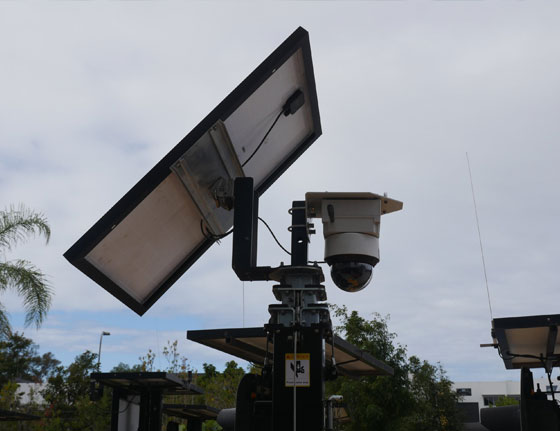Blog
How to Choose the Right Wire Sintered Filter for Your Industry Needs
In today's industrial landscape, the demand for effective filtration solutions is increasing as companies strive for enhanced performance and compliance with stringent environmental regulations. The wire sintered filter, recognized for its durability and high filtration efficiency, plays a critical role across various sectors such as chemical processing, pharmaceuticals, and food and beverage. According to a recent market analysis by Global Industry Analysts, the global filtration market is projected to reach $98 billion by 2027, underscoring the growing need for advanced filtration technologies like wire sintered filters. These filters are not only designed to handle high-pressure applications but also offer superior particle retention capabilities, making them essential for maintaining product purity and optimizing process reliability. Understanding how to choose the right wire sintered filter tailored to specific industry needs is crucial for maximizing operational efficiency and achieving long-term cost savings.
Understanding the Basics of Wire Sintered Filters and Their Applications
Wire sintered filters are an essential component in various industrial applications, providing precise filtration solutions across multiple sectors. These filters are made from multiple layers of wire mesh that are sintered together, offering superior strength and durability compared to traditional filter media. The pore size can be customized, allowing for efficient removal of contaminants ranging from large particles to fine impurities, ultimately enhancing process efficiency and product quality. According to a report by MarketsandMarkets, the global filter market is projected to grow from USD 92.06 billion in 2021 to USD 117.37 billion by 2026, highlighting the increasing demand for advanced filtration technologies.
In industries such as oil and gas, food and beverage, pharmaceuticals, and water treatment, the use of wire sintered filters can significantly reduce operational downtime and maintenance costs. For instance, the filtration capability of wire sintered filters is critical in oil filtration systems, where removing particulates can prevent equipment wear and enhance performance. A study from the Filtration Society indicates that using wire sintered filters can lead to a 30% increase in filter life, reducing waste and improving the sustainability of industrial operations. Understanding the specific requirements of your industry and the benefits of wire sintered filters can guide you in making informed decisions to optimize your filtration processes.
Key Industry Standards for Wire Sintered Filter Performance
When selecting a wire sintered filter, understanding the key industry standards for performance is crucial. One of the primary standards to consider is the filtration efficiency, which determines how effectively a filter removes contaminants from a fluid. Filters are often rated based on their ability to capture particles of specific sizes, so it's vital to select one that meets or exceeds your industry’s requirements for clarity and purity. High-quality wire sintered filters can achieve lower micron ratings, which is essential in industries like pharmaceuticals and food processing, where particulate contamination can have serious implications.
Another important standard is the material compatibility of the filter. Wire sintered filters are typically made from stainless steel or other alloys designed to withstand high pressures and temperatures. Depending on the application, it’s essential to ensure that the filter material can resist corrosion and oxidation while maintaining its structural integrity over time. Additionally, adherence to industry certifications, such as ISO 9001 or FDA compliance, can provide assurance that the filter meets stringent quality and safety standards, making it suitable for specialized applications in sectors such as aerospace, oil and gas, and water treatment.
Assessing Filtration Requirements: Flow Rate, Particulate Size, and Compatibility
When selecting a wire sintered filter, assessing your filtration requirements is crucial. Start by determining the flow rate your system demands. Higher flow rates necessitate filters with larger surface areas to prevent clogging and maintain efficiency. Conversely, if your application has a lower flow rate, you can opt for a more compact filter, which may offer higher precision.
Particulate size is another key factor in filter selection. Consider the smallest particles you need to capture to avoid contamination in your processes. For applications dealing with fine particulates, filters with tighter pore sizes will be necessary, while coarser filters may suffice for larger particles. Always refer to manufacturer specifications for optimal performance based on your specific particle size requirements.
Lastly, compatibility with the fluids and chemicals involved is essential. Ensure that the filter material can withstand the temperature and chemical properties of your application, preventing premature degradation. This compatibility will enhance the longevity of the filter and maintain consistent filtration performance over time.
**Tips:**
- Regularly monitor your filter's performance to anticipate maintenance needs, ensuring uninterrupted operations.
- Keep spare filters handy to minimize downtime during replacements, particularly for critical systems.
- Consult with filter manufacturers for tailored recommendations based on your unique operational conditions, ensuring optimal filtration efficiency.
Comparative Analysis of Material Options for Wire Sintered Filters
When selecting wire sintered filters, understanding the material options available is essential. Various sintered metals and polymers can significantly affect performance and applications. A recent comparative analysis highlights that sintered PTFE emerges as a superior choice for many manufacturers due to its enhanced venting and filtering capabilities. Data shows that mechanical filtration using sintered PTFE can achieve particle retention rates as high as 99.9%, making it effective for various fluid applications, including air and water filtration.
Moreover, sintered filters can be tailored to suit specific industry needs. For instance, when subjected to extreme temperatures or corrosive environments, wire sintered filters made from stainless steel may outperform polymer options. Industry reports indicate that stainless steel sintered filters can withstand temperatures up to 600°F and pressures beyond 1500 psi, which can significantly extend the lifespan of filtration systems in demanding settings. Therefore, selecting the right material for wire sintered filters is crucial to optimizing operational efficiency and ensuring compliance with industry standards.
Evaluating Manufacturer Quality and Certifications for Optimal Selection
When selecting a wire sintered filter for your specific industrial application, evaluating the quality of the manufacturer and their certifications is crucial. A reputable manufacturer will adhere to strict quality control standards, ensuring their filters meet the necessary specifications for high performance and durability. Look for certifications such as ISO 9001, which signifies a commitment to quality management systems, and industry-specific certifications that highlight compliance with regulatory standards. These certifications not only reflect the manufacturer's dedication to quality but also provide assurance that their products have been tested and validated for efficacy.
In addition to certifications, consider the manufacturer’s experience and reputation in the industry. A well-established company typically has a track record of successful projects and satisfied customers. Reading customer reviews and case studies can provide insights into the reliability of their products and customer service. Furthermore, inquire about the range of filtration solutions they offer and whether they can customize filters to meet your unique requirements. By closely examining manufacturer quality and certifications, you can make an informed decision that will enhance your operational efficiency and product quality.
How to Choose the Right Wire Sintered Filter for Your Industry Needs
| Filter Type | Material | Pore Size (μm) | Max Temperature (°C) | Industry Application | Certification |
|---|---|---|---|---|---|
| Sintered Wire Mesh | Stainless Steel | 10 | 350 | Food & Beverage | FDA, ISO 9001 |
| Sintered Powder Filter | Bronze | 25 | 300 | Chemical Processing | CE, ISO 9001 |
| Sintered Composite Filter | Polypropylene/Steel | 5 | 120 | Water Treatment | NSF, ISO 9001 |
| Sintered Nylon Filter | Nylon | 15 | 80 | Pharmaceutical | FDA, ISO 13485 |





